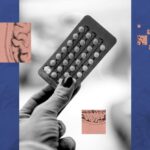Breakups, universally acknowledged as one of life’s most challenging events, thrust individuals into a maelstrom of contrasting emotions. These feelings, which can span the spectrum from profound sorrow to seething anger, and occasionally a sense of liberation, often leave one’s mind preoccupied and distracted. During such emotionally charged times, tasks that necessitate focus and a clear head, like driving, can transform into dangerous endeavors.
9 Reasons To Steer Clear Of Driving As You Work Through The Emotional Toll Of A Breakup
Engaging in activities that demand precision and alertness, like maneuvering a vehicle, becomes perilous when the mind is clouded with emotional turmoil. The aftermath of a breakup can lead to an empty feeling, introspection, replaying memories, and analyzing conversations, all of which can divert attention from the road ahead.
Given the inherent risks, it’s crucial to recognize and understand why driving post-breakup might not be the safest choice. Below are nine compelling reasons that underscore the importance of refraining from driving during this vulnerable phase:
1. Impaired Judgment
Emotional distress, often a byproduct of breakups, can cloud your judgment. When you’re upset or distressed, you might not make the safest choices on the road, increasing the likelihood of auto accidents.
2. Distractions
Post-breakup, your mind will likely be preoccupied with replaying conversations, thinking about “what went wrong,” or envisioning life without your former partner. Such distractions can divert your attention from the road, making you less responsive to sudden changes or unforeseen obstacles.
3. Reduced reaction time
Post-breakup feelings of grief, sadness, or anger can slow down your cognitive processes. This means that your reaction time might be compromised. In situations where split-second decisions are crucial, like when a pedestrian suddenly crosses the road or another vehicle brakes unexpectedly, delayed reactions can have dire consequences.
4. Impulsive behavior
Breakups can lead some to act out of character, making impulsive decisions without considering the potential outcomes. This impulsivity can translate to risky driving behaviors such as speeding, not yielding, or making abrupt lane changes.
5. Physical symptoms
Apart from emotional distress, breakups can also manifest physical symptoms like headaches, fatigue, or dizziness. Driving in such a state not only jeopardizes your safety but also the safety of others on the road.
6. Tendency to use alcohol or drugs
Some individuals might resort to alcohol or drugs as a coping mechanism post-breakup. Driving under the influence is not only illegal but also incredibly dangerous. It impairs your ability to concentrate, react, and judge distances and speeds.
7. Overwhelming emotions
Sudden outbursts of emotions like crying or anger can obstruct your vision and attention. Tears can blur vision, and heightened emotions can make it hard to focus on the surrounding environment, leading to potential accidents.
8. Avoiding familiar places
There’s a tendency to avoid places filled with memories after a breakup. This might make you take unfamiliar routes, leading to confusion or getting lost. Navigating unknown territory can increase stress and the chances of making driving errors.
9. The urge to reach out
The immediate aftermath of a breakup might come with the urge to communicate, leading to the temptation of texting or calling while driving. Using a phone, even hands-free, divides your attention and increases the risk of accidents.
In the face of such compelling reasons, it’s evident that driving after a breakup poses significant risks not only to you but to others on the road. While the pain of a breakup is undeniable and often overwhelming, it’s crucial to prioritize safety. If you need to go somewhere, consider alternative means of transportation, such as taking a cab, asking a friend for a ride, or using public transport. Give yourself the time and space to process your emotions without adding the additional stress and risk of driving.
Navigating the emotional aftermath of a breakup can be as challenging as navigating a busy highway during rush hour. Just as a vehicle requires a clear mind and undivided attention to function safely, our hearts and minds need time and space to heal post-breakup without the added stress of managing a powerful machine on the road. When emotions run high, they can cloud our judgment, slow our reactions, and lead us to make impulsive decisions.
It’s essential to understand the profound responsibility that comes with getting behind the wheel. Driving isn’t merely about operating a vehicle; it’s about ensuring the safety of oneself and everyone else on the road. The intense emotions post-breakup can act as obstacles, diverting our focus and leading to potentially hazardous situations. By acknowledging the risks and choosing not to drive during such vulnerable times, we not only prioritize our well-being but also contribute to a safer driving environment for all. After all, the journey of healing is best undertaken with caution, ensuring that both heart and road are tread upon with care.
Your contribution does not constitute a charitable donation. It will allow Bonobology to continue bringing you new and up-to-date information in our pursuit of helping anyone in the world to learn how to do anything.





